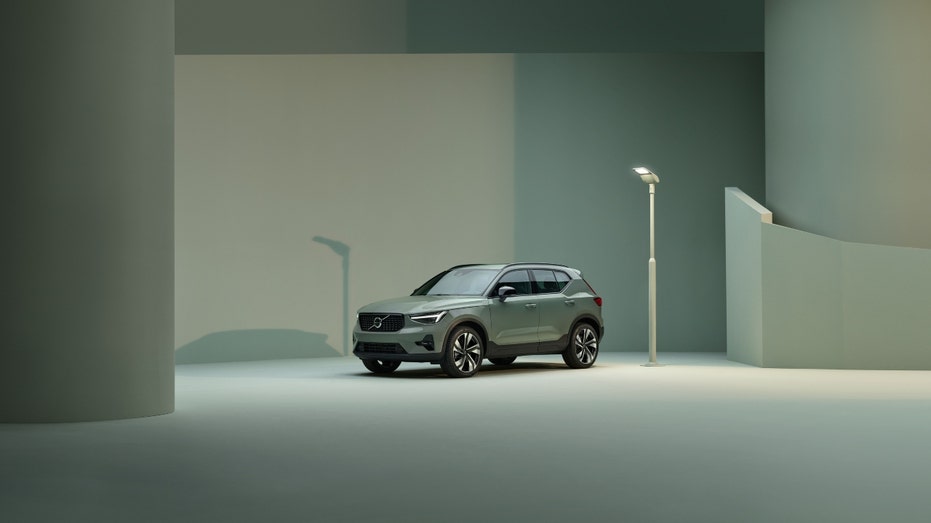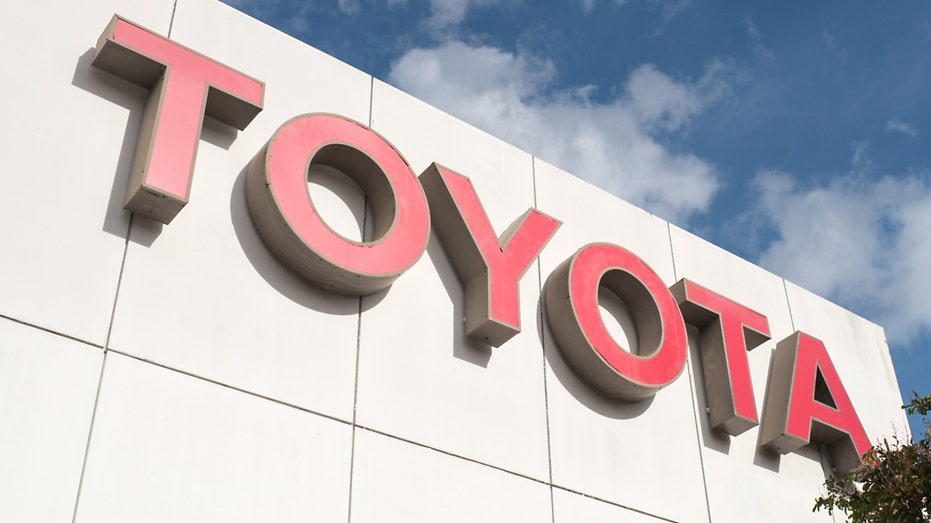Most small SUVs rated 'poor' in insurance crash testing
Certain Ford, Volvo small SUVs earned a 'good' rating
The Insurance Institute for Highway Safety announced on Monday that the majority of 15 small SUVs received "poor" ratings following the latest frontal crash tests.
However, because the updated test places more emphasis on the safety of back-seat passengers, the vehicles are reportedly just as safe as they were before.
After the moderate overlap front evaluation, just the Ford Escape and Volvo XC40 protected the rear occupant well enough to earn a "good" rating.
The Toyota RAV4 earned an "acceptable" rating and the Audi Q3, Nissan Rogue and Subaru Forester were rated as "marginal."
US AUTO FLEET FUEL EFFICIENCY FLAT IN 2021 AS DETROIT THREE LAG

A Ford logo is seen on signage at Country Ford in Graham, N.C., on July 27, 2021. ((AP Photo/Gerry Broome, File) / AP Newsroom)
Comparatively, the Buick Encore, Chevrolet Equinox, Honda CR-V and HR-V, Hyundai Tucson, Jeep Compass, Jeep Renegade, Mazda CX-5 and Mitsubishi Eclipse Cross were rated "poor."
The institute said that all 15 vehicles earn good ratings in the original evaluation, "demonstrating robust structures and effective restraints that protect the driver’s head from contacting the hard surfaces of the interior and minimize the risk of other types of injuries."
However, the report found that additional measurements in the new test show most of the small SUVs don't provide adequate protection for the rear passenger’s head and neck.
"The original moderate overlap test was our first evaluation and the lynchpin of the Institute’s crash testing program," IIHS President David Harkey said in a statement. "Thanks to automakers’ improvements, drivers in most vehicles are nearly 50% less likely to be killed in a frontal crash today than they were 25 years ago. Our updated test is a challenge to manufacturers to bring those same benefits to the back seat. The stellar performance of the Escape and XC40 shows it’s possible."

The 2023 Volvo XC40 (Volvo Car USA / Fox News)
GET FOX BUSINESS ON THE GO BY CLICKING HERE
Harkey told The Associated Press that "it's not that the vehicle has become any less safe," but that the institute had previously focused studies on how well the driver was protected.
The testing has been changed in the past in an effort to get automakers to make safety improvements and he noted that they normally respond to the changes.
A recent study of real-world crashes – instead of using a crash dummy – showed that back-seat passengers were, in many cases, injured more severely than those in front seats.

Close-up of sign with logo on building facade at the San Francisco regional headquarters of automotive company Toyota in the Bishop Ranch office park in San Ramon, California, October 20, 2017. ((Photo by Smith Collection/Gado/Getty Images) / Getty Images)
In vehicles from model year 2007 onward, the risk of a fatal injury is 46% higher for belted occupants in the rear seat than in the front, according to the institute, and fewer than half of new vehicles have features like advance restraint systems in the rear seat.
Harkey told the AP that some automakers have put more sophisticated belts in their back seats.
CLICK HERE TO READ MORE ON FOX BUSINESS
"The industry has always been good about responding to tests that we have introduced," he said. "We expect they will do so in this case, and we expect they will be able to do so quickly."
Small SUVs are the most popular new vehicles sold in the U.S.
Earlier this month, the U.S. National Highway Traffic Safety Administration (NHTSA) said it was opening new safety probes into 1.72 million Honda vehicles, 230,000 Jeeps and 390,077 Ram trucks.
Reuters and The Associated Press contributed to this report.





















